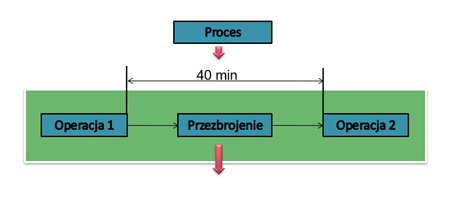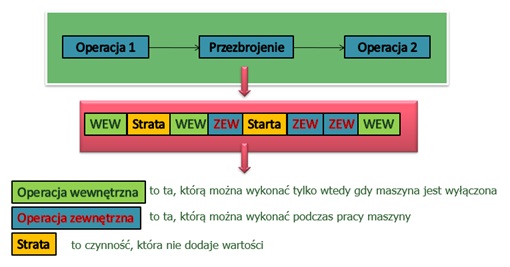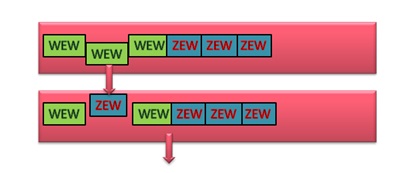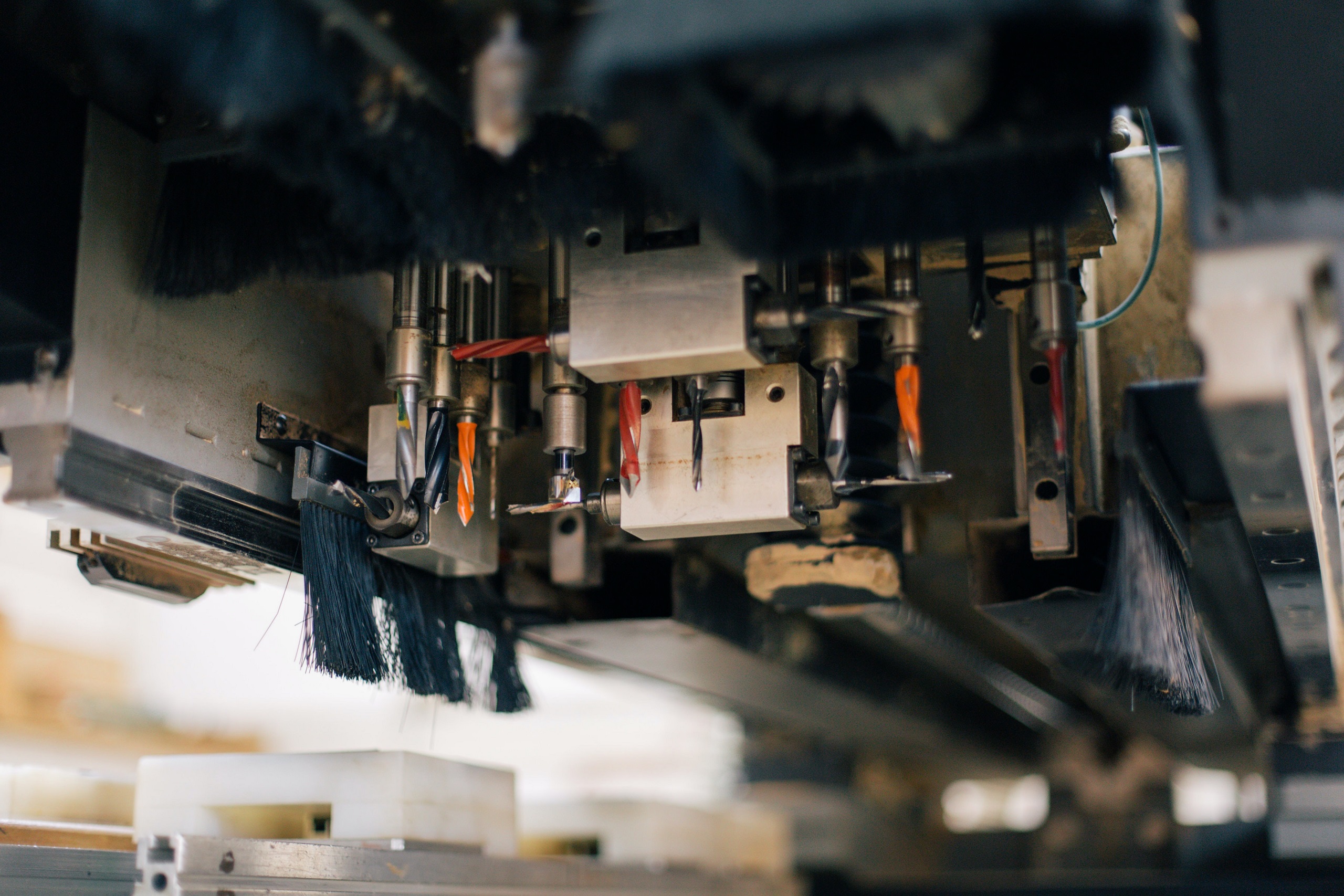LEAN Tools
- 5S
Workplace organization - KANBAN
Material management - LEAN OFFICE
Optimization in the office - DESIGN THINKING
A way of thinking - LAYOUT
Internal logistics - SMED
Rapid changeover - SOP
Standardization of work - TPM
Total Productive Maintenance - TWI
Training Within Industry - KPI
Visual Management - VSM
Value Stream Mapping
Find out more from the experts
Talk to Lean Idea
+48 607 86 49 85
SMED
Quick changeover method
(Single Minutes Exchange of Die)
The method involves refitting a machine or plant in less than 10 minutes. It enables the company to gain the ability to perform each changeover in the shortest possible time.
Separation of internal and external activities occurring during changeover
Transforming internal preparation activities into external preparation activities
Improvement of preparatory activities
Observation of the process
Pure observation of the changeover process. Video recording works well in this step. The observation team should include operators from other shifts who can best compare changeover methods and have the best ideas.
During the observation, you should:
- Make a spaghetti chart.
- Name the operations clearly and legibly.
- Measure the times of the operations.

Classification of activities

Without judging or discussing, activities should be divided into 3 groups:
- external activities,
- internal activities and
- losses
This is a long and arduous step that requires patience and knowledge of the process.
Elimination of losses

A loss is anything that does not add value.
Should be eliminated:
- transport
- walking
- checking
- trying
- adjusting
- fitting
- looking
- waiting
- reconciling
For changeovers, adding value will be anything that reduces machine downtime.
Separation of external and internal activities

After eliminating waste, this is the second most important step in SMED. It reduces set-up times by up to 50%. Just throwing external activities out of machine downtime will bring tangible benefits.
Transforming internal activities into external ones

An open mind and creativity helps at this stage. Most often it is possible to swap activities such as:
- control: presence, quantity, condition, tool material or specifications,
- introduce pre-setting: temperature, pressure, type of product, quantity to be made, identification, raw material for production,
- reduce all transport, storage and access to tools needed for changeovers,
- complete documentation, quality and release permits or accept the start of production.
Improvements in preparatory and set-up operations
Each activity should be analysed and thought about how it can be improved or modified.
The most common successes are:
- improve communication between operators,
- determine the order in which activities are to be performed by describing the locations,
- use of more modern, accurate positioning equipment,
- use of gauges and benchmarks for comparison.
The most ambitious companies unify the final product or the raw materials used thus eliminating changeovers.
Benefits of implementing SMED
- Identifies unnecessary and indispensable activities.
- Reduces changeover times.
- Optimises the use of human resources, tools and machines.
Get in touch with us!





